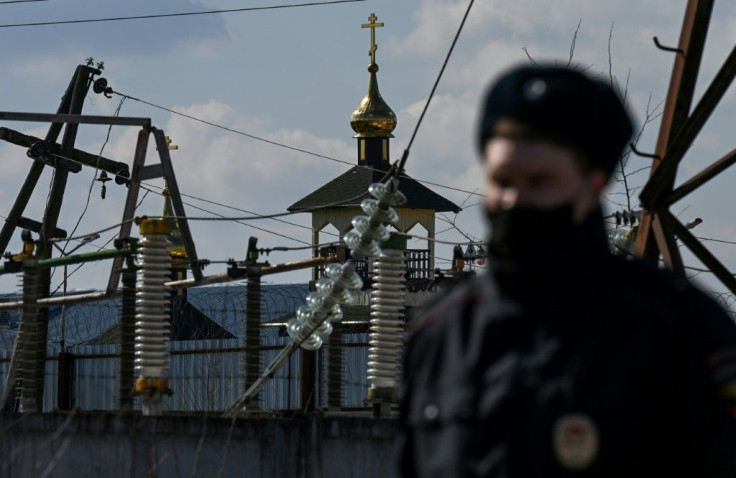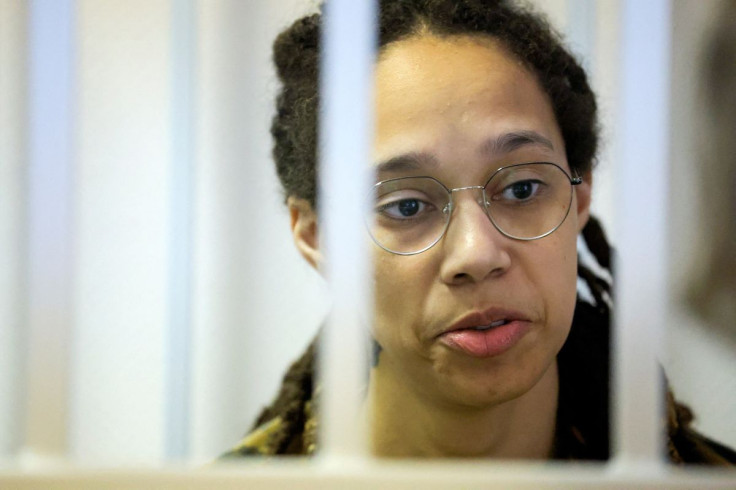This Is What Brittney Griner's Prison Camp Will Be Like

KEY POINTS
- Brittney Griner will serve jail time in one of Russia's 35 or so all-women penal colonies
- The prisons are known to have dilapidated infrastructure and overcrowded cells
- Human rights activists hope Griner will be allowed to coach basketball during her sentence
Brittney Griner will serve jail time in one of Russia's penal colonies, prisons that one incarcerated Russian activist likened to concentration camps.
The two-time Olympic gold medalist and Women's National Basketball Association (WNBA) champion will be sent to one of Russia's 35 or so all-women penal colonies, Insider reported.
Griner, 31, was headed to Russia's Ural region in February to play for the team UMMC Ekaterinburg when federal authorities discovered she was carrying vaporizer cartridges containing less than a gram of hash oil at Moscow's Sheremetyevo International Airport. The oil was prescribed medical cannabis in Arizona, but Griner was arrested as it is illegal in Russia.
A Russian court sentenced Griner to nine years in prison on drug possession and smuggling charges on Aug. 4.
Griner's lawyers are appealing the sentence, and the Biden administration is working on trying to bring her home via a prisoner exchange.
For now, human rights activists are hoping Griner will be sent to a colony with a governor who would allow her to coach basketball during her stay.
Most prisoners in penal colonies have to work eight hours a day sewing, cleaning, cooking and serving food.
Every morning, prisoners "are woken at 6 a.m., they wash, dress, make their beds, stand to attention for the register, go to breakfast and then start an eight-hour working day, usually as seamstresses," human rights activist Ivan Melnikov told People.
However, prison governors are now being encouraged to use the talents of their inmates, according to Melnikov, who is the vice president of the Russian Department of the International Human Rights Defense Committee.
Griner's background may allow her to coach basketball, he said. Russian soccer players Alexander Kokorin and Pavel Mamayev coached inmates while they served time in a penal colony.
"Prisoners are encouraged to play sports or do yoga and so on, and basketball is popular. I think that would be the best thing for her," Melnikov said.
Penal colony prisoners also reportedly get some free time outside of their work requirements.
"Their free time is set by the governor, from half an hour to two hours a day, and during that time they can just chat with each other, read a book from the library, write letters home, play sports, play board games and call friends and family," Melnikov explained.
Prisoners are also supposed to get a minimum wage of $180 a month, which they can spend in the prisons' shops on items like toiletries, tampons and cigarettes, among other things, he said. They can also pay for internet to send emails.
Russian penal colonies inherit many of their practices from the Soviet Union's gulags, a network of labor camps that were used as tools of political repression and exploited labor, a report by The Washington Post said.
Each facility's treatment of inmates is supposedly based on its geographic location and leadership structure.
Jailed Russian lawyer and opposition politician Alexei Navalny, who was sent to Russia's Corrective Colony No. 2, called the prison a "friendly concentration camp."
Guards allegedly denied him proper medical care or the chance to sleep all while he underwent what he claimed was dehumanizing surveillance.
There are also commonalities across the penal colony system, such as the sites' dilapidated infrastructure that have been known to limit access to running water and heat, according to Insider.
In addition, colonies are reportedly overcrowded, and many prisoners live in close quarters with about 50 other people.
Under Russian law, each inmate must have 20 square feet of personal space, but that standard is reportedly often not met in Russian facilities.

© Copyright IBTimes 2025. All rights reserved.




















